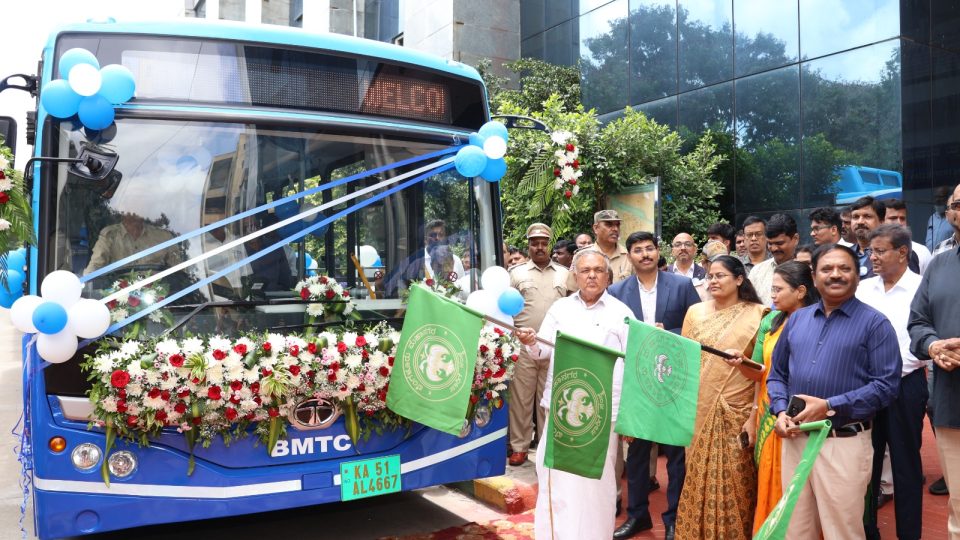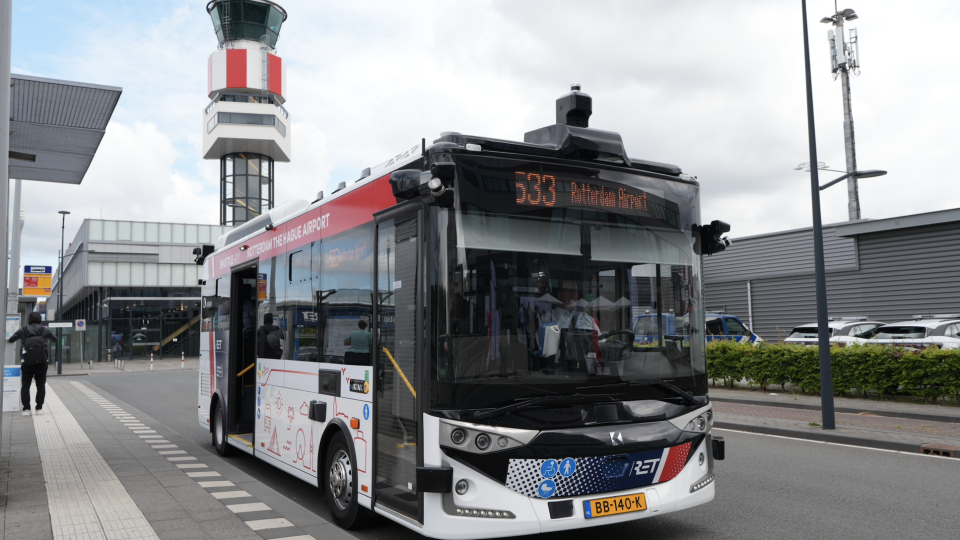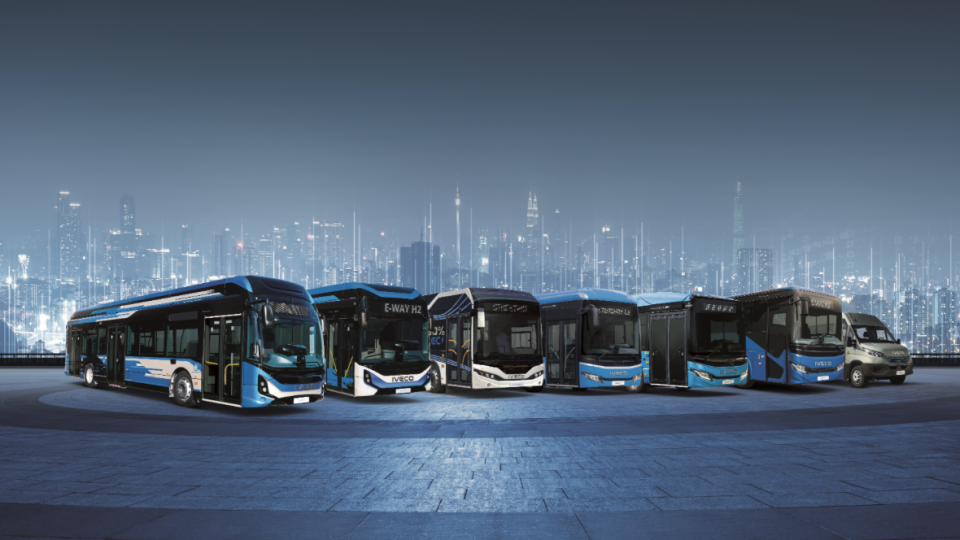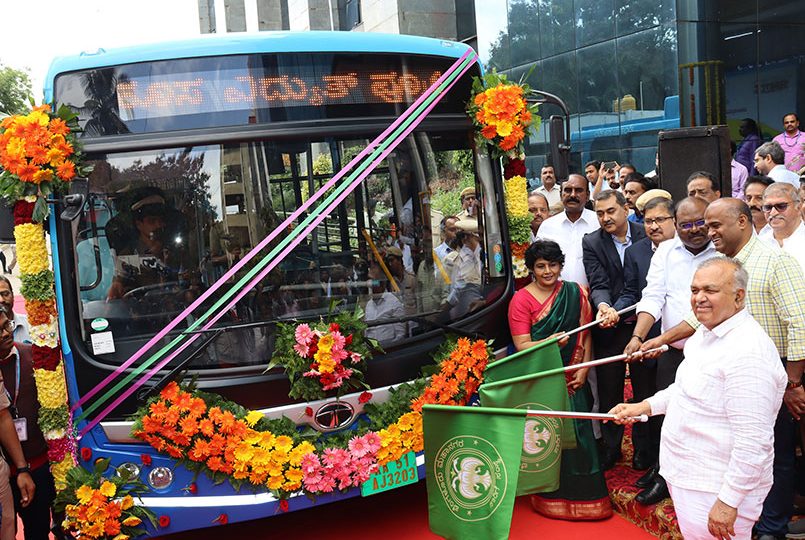Double decker fuel cell bus fleet launched in London
England’s first ever double decker fuel cell bus fleet has been launched yesterday in London by mayor Sadiq Khan. The hydrogen buses join a fleet of over 500 electric buses – one of the largest fleets in Western Europe. The aim is to make all London buses zero emission by 2030. Just a few days […]
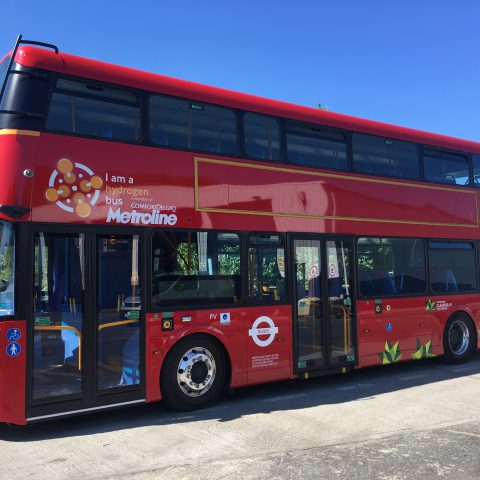
England’s first ever double decker fuel cell bus fleet has been launched yesterday in London by mayor Sadiq Khan. The hydrogen buses join a fleet of over 500 electric buses – one of the largest fleets in Western Europe. The aim is to make all London buses zero emission by 2030. Just a few days ago a major order for 195 battery-electric buses for London was awarded to BYD ADL.
Fuel cell buses in London
The new hydrogen fuel cell double decker buses are first being introduced on route 7 between East Acton and Oxford Circus.
The Mayor’s green transport investment is also supporting jobs across the UK. The buses were manufactured by Wrightbus in Northern Ireland, helping to create new jobs, and the gas cylinders are manufactured by Luxfer in Nottingham. The hydrogen for the buses is currently being produced at Air Liquide’s plant in Runcorn, harnessing waste hydrogen as a by-product from an industrial chloralkali plant. Oxford-based Ryze Hydrogen is responsible for transporting the fuel to the fuelling station. From 2023, the hydrogen will be even greener as it will be produced by electrolysis powered by a direct connection to an offshore windfarm, London municipality points out in a press note.
A new, state of the art fuelling station completed by Danish engineering firm Nel Hydrogen will top up each hydrogen fuel cell bus just once per day in as little as five minutes.
JIVE project and EU money for fuel cell buses in London
In addition to around £6 million of funding from TfL, more than £5 million of funding has been provided by European bodies – by the Fuel Cells and Hydrogen Joint Undertaking, and the Innovation and Networks Executive Agency (INEA), an executive agency of the European Commission – as well as £1 million from the Office of Zero Emission Vehicles.
TfL has paved the way for cheaper hydrogen buses across the rest of the UK, having led the UK procurement within the Joint Initiative for Hydrogen Vehicles across Europe (JIVE), to buy in bulk with other UK authorities. In total, the JIVE project seeks to deploy 139 new zero-emission fuel cell buses and associated refuelling infrastructure across five European countries and has received funding from the Fuel Cells and Hydrogen Joint Undertaking.
With sustained financial support from the Government, TfL could look to accelerate its plans for a zero-emission bus fleet from 2037 to 2030 in order to reduce carbon emissions and address the public health emergency caused by dirty air.
The Mayor will today visit Perivale bus depot in Ealing to see the new hydrogen double decker and new hydrogen refuelling station.
London: the ambitious of making all buses ZE by 2030
The Mayor of London, Sadiq Khan, said: “We have made real progress in London to clean up our air, but we still have a long way to go because toxic air pollution in our city is still leading to thousands of premature deaths every year and is stunting the growth of children’s lungs. As part of our world-leading ongoing efforts, I’m proud to announce England’s first hydrogen double decker buses, which don’t produce any harmful emissions, will now be put into service. Our investment in these hydrogen buses is not only helping us to clean up London’s air, but is supporting jobs and local economics across the UK. This is a great demonstration of how tackling air pollution and the climate crisis and boosting economic growth is about regions working together, investing in the very latest technology. I’ve worked hard to ensure TfL’s entire core bus fleet across London now meets the ULEZ standards, and this includes 500 electric buses. Our new investment in hydrogen buses will move us even closer to our ambition of making all London buses zero-emission by 2030.”
Interim Director of Buses, Transport for London, Geoff Hobbs said: “London may have one of the cleanest bus fleets in Europe, but we need to continue to act now to tackle climate change and the city’s toxic air quality. Introducing these hydrogen double decker buses to our fleet, alongside electric buses, diversifies our green bus portfolio and helps us use the right technology for the varying operational requirements of our vast network. This will help Londoners breathe cleaner air. Our investment in hydrogen won’t just benefit London, either. Outside the capital, we are supporting jobs across the UK and our involvement with the industry across Europe is making cleaner fuels more affordable to cities all over Europe.”
Wrightbus CEO, Buta Atwal, said: “At Wrightbus, we’re incredibly proud to be launching our world-first zero emission hydrogen double deckers onto the streets of London to help turn its iconic red buses green. London residents – and visitors to the capital from around the world – can experience what it’s like to ride in a UK-made hydrogen-fuelled vehicle that produces no harmful emissions from its exhaust. Thanks to TfL’s visionary approach, the city will have the first fleet of hydrogen double deckers in England and the benefits to the city in terms of CO2 reduction will be significant. We hope that other cities around the country will follow London’s lead and help us in our ambition to decarbonise public transport and improve air quality.”
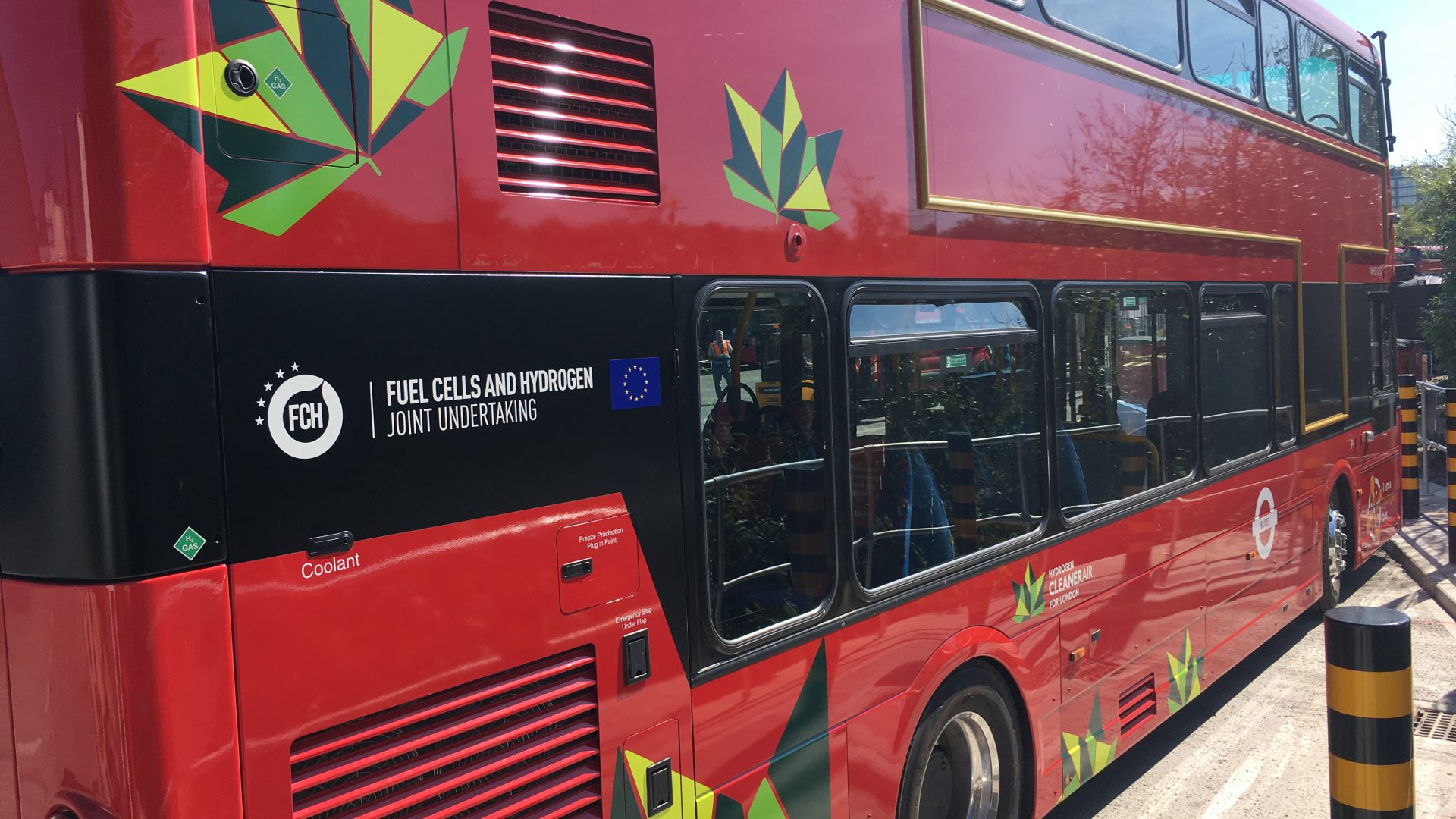
Sean O’Shea, CEO at Metroline said: “Hydrogen is an extremely promising renewable fuel for public transport vehicles and we are looking forward to proving its application on London’s roads. The hydrogen buses are an exciting new addition to our fleet, and highlight Metroline’s continued dedication to making London’s streets greener. Our engineering teams have been hard at work preparing the buses for service and we are proud to be operating the first hydrogen powered double-deck buses in London in the hope that it will further showcase the application of sustainable vehicles in the capital.”
Bart Biebuyck, Executive Director of the Fuel Cells and Hydrogen joint undertaking (FCH JU), said: “We are proud to see that thanks to our grant the JIVE project enables the market size scale-up of fuel cell buses in Europe and contributes to the price reduction for the entire value chain. With green hydrogen solutions we can improve the air quality of London and build a climate-neutral transport system for our future generations. London has long and successful history with fuel cell buses and played a key role in leading a joint procurement scheme on behalf of several UK cities for the deployment of world first double decker buses running on hydrogen”.
Jens Egholt Rasmussen, Senior Director Global Sales at Nel Hydrogen A/S, said: “In May 2019, we were proud to announce a contract for a bus H2Station™ solution for Transport for London. Today, I’m happy to confirm a dual bus H2Station™ has been commissioned and is now fully operational. While currently in the ramp-up phase, eventually, 20 buses will be fuelled at the station on a daily basis. Hydrogen buses are already a competitive alternative to battery buses, with significantly faster fuelling time and therefore, less downtime. They are also becoming more of a competitive alternative to diesel buses on a total cost of ownership basis. The market for such solutions is growing quickly and we see significant opportunities going forward. This is an important step in the right direction.”




